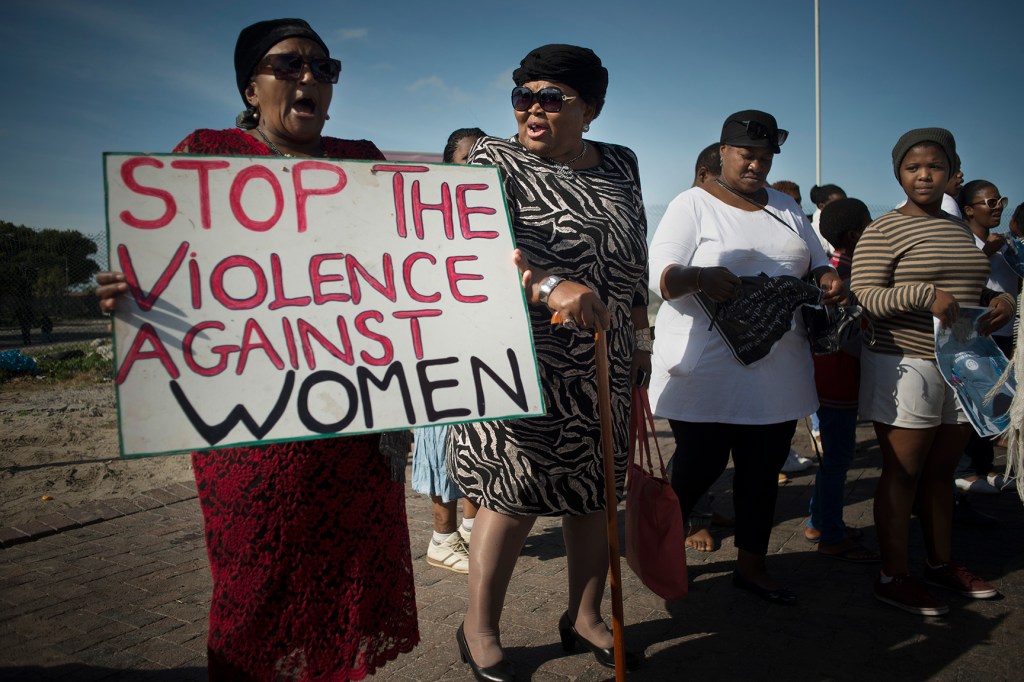
As the local director of a funding organization, a human rights attorney, and as a South African woman, I am glad this country is now having a serious conversation about sexual harassment and violence against women in our workplaces. It is long overdue. And to be clear, it is not only overdue generally, it is particularly overdue among social justice organizations.
But I’m worried that we are not really interrogating this complex subject as we should. Our attention is drawn to specific cases and specific organizations, but perhaps we should be interrogating the larger narratives we tell ourselves and the way in which we silence the violence and trauma associated with sexual harassment in the workplace. If we think of these cases as isolated incidents and never possible in our own organization, then we are missing a critical moment to examine our own practices and the values we espouse as institutions devoted to the fight for social justice and human dignity.
Many of us who join the social sector hold it in high regard, even above reproach, and we enter this work to fight the good fight. So, when our heroes disappoint and end up exploiting and harming us, we quietly pretend it never happened, and we keep silent. This is like keeping abuse within the family quiet for fear of bringing shame. Or perhaps, more perilously, we are in denial about the existence of violence and abuse within our sacred social justice spaces. Yet we know that power and patriarchy come together in workplaces of all kinds — from Harvey Weinstein studios in Hollywood, to the domestic aide working for a ‘madam and baas’ in Sandton, to the farm worker in rural South Africa who submits for fear of reduced work or wages, to corporate corridors where senior executives coerce junior employees, and on and on.
It’s simply not safe for women anywhere, and that includes the social justice sector, with all its values and aspirations. It’s time we dispelled the myth that social justice organizations are squeaky clean and have no racism, no sexism, no homophobia. For too long South African women have been silent in the name of the greater struggle against apartheid or racism and have not wanted to point fingers at men who fight alongside us in the name of social justice. This has to stop once and for all — and we need to protect the brave, courageous women who do come forward without labelling them as vindictive or liars.
It’s time to speak about just how hard it is to overthrow systems of patriarchy and how they infiltrate the way we work, live and love. It’s time to think about how we transform institutions in terms of not only more black women leaders but also how we transform masculinist patriarchal cultures. We all need to do better, including social justice donors like my own organisation.
So let me call out what should be obvious but needs to be actively asserted and owned:
- The fact that you are a brilliant legal mind on matters of land and mining does not mean that you are not capable of being a predator or a sexual harasser.
- Your brilliance at activism, movement building and community organizing does not insulate you from being sexist or racist or violent.
- Your anti-apartheid credentials do not automatically mean that you are never, ever capable of rape.
- The fact that you personally know someone as being smart, thoughtful, and on the right side of social justice or able to use feminist language does not mean that women who make allegations against that person are liars.
Many, many years ago, when I was trained as a rape crisis counsellor, we were asked to close our eyes and picture a rapist who had done horrible things. The facilitator took us through the whole story of the woman — going for drinks after work, laughing too loudly with her assailant, dancing with him, leaving the bar with him, and then coming forward the next day after being violently raped and beaten. The facilitator stopped to check whether we would blame the woman or believe the woman. We all believed, because we know the story very well. But then we were asked to keep our eyes closed and imagine the rapist as a man we loved and admired — a father, a brother, a best friend, or someone famous. Now how did we react to the story, and how did we assess the woman?
Here’s the point: powerful, smart, good-looking, charismatic men do rape, harass and exploit women. It happens in the corridors of power within governments, corporations, universities, religious institutions, and yes, it happens in our social justice institutions. So, let’s not get defensive, but rather spend more time interrogating how we really shift and transform organizations in terms of our vision for a just and fair society.
Acknowledging the tricky power dynamics between funders and the organizations we support, I’d nonetheless like to make some initial suggestions for what we might collectively start thinking about:
- We should all agree that there is a higher duty of care with social justice organizations in cases of sexual harassment, racism and homophobia and come together to develop a common set of principles and values to hold ourselves as a sector to account. This could include how we define zero tolerance and acceptable due diligence amongst civil society organizations. How do we provide technical support to assist organizations to navigate sexual harassment cases and awareness better?
- We could try to break the silence by documenting and sharing good practices for handling cases of sexual harassment and speak more openly and publicly about the challenges faced when implementing policy at all levels in the organization (staff, leadership and board) bearing in mind the importance of protecting complainants’ privacy and rights at all times.
- We need to workshop how best donors can support a transformative agenda in this space that is less reactive, and geared toward addressing systemic and structural challenges. When is it appropriate to take a punitive approach and when should our approach be supportive? When should we act decisively and terminate relationships and when should we pause and wait to see how organizations respond? These are questions we must openly grapple with. And all of us (including donors) should regularly interrogate and test our own prejudice, privilege and biases in terms of whether we are applying the same standards and principles to all our partners and ourselves in our own practice.
Sexual harassment scandals should be a loud wake-up call for all of us to dig deep and interrogate our ‘holier than thou’ approach to sexism and racism within our own institutions because once we move out of denial, we may allow ourselves to be angry, to rage, to cry and to heal so that we can move into the realm of accountability.
Maybe then we will be able to get on with working to dismantle prejudice, inequality and patriarchy, one brick at a time.
This piece was originally published on Mail & Guardian.
